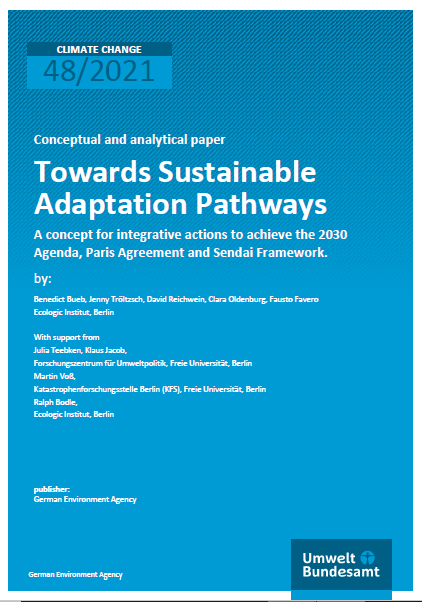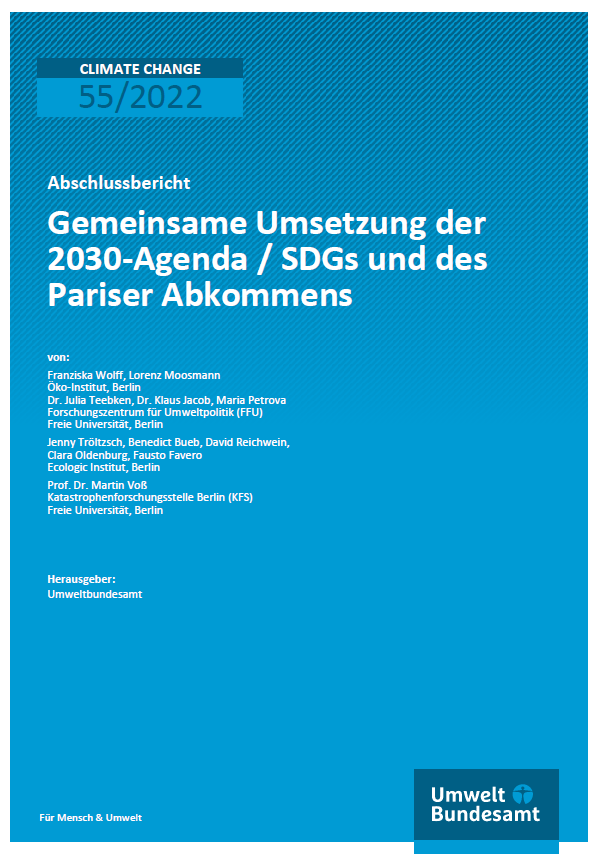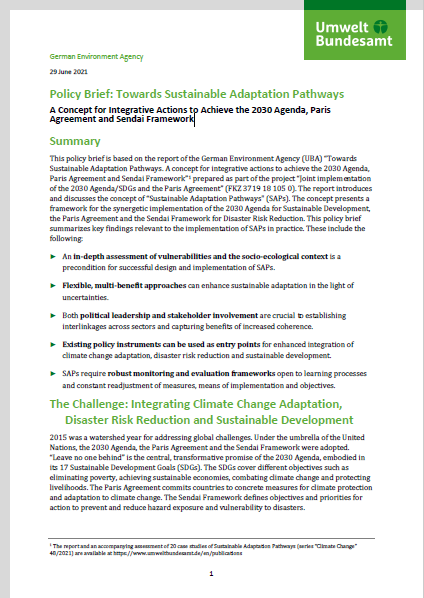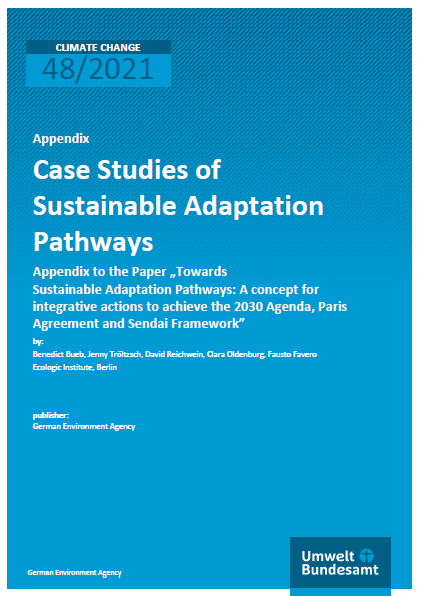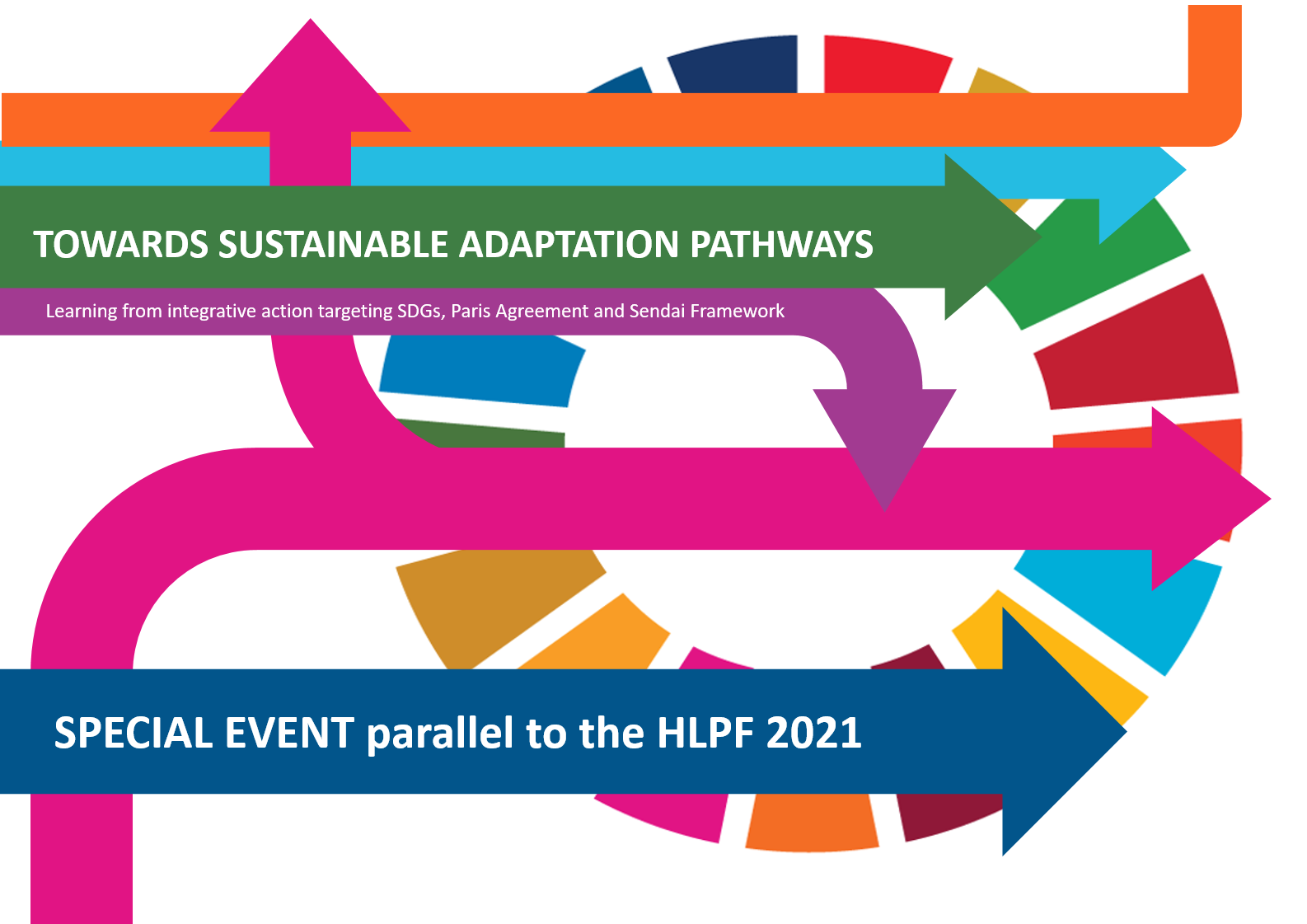Towards Sustainable Adaptation Pathways
A concept for integrative actions to achieve the 2030 Agenda, Paris Agreement and Sendai Framework
- Publication
- Citation
Bueb, Benedict, Tröltzsch, Jenny, Reichwein, David, Oldenburg, Clara, Favero, Fausto (2021): Towards Sustainable Adaptation Pathways. A concept for integrative actions to achieve the 2030 Agenda, Paris Agreement and Sendai Framework. Climate Change | 48/2021. Dessau-Roßlau: Umweltbundesamt
The devastating flash floods and forest fires in Europe in summer 2021 have highlighted the need for stronger linking disaster risk management with climate adaptation efforts. This report introduces the concept of Sustainable Adaptation Pathways that can act as guidance when planning and implementing integrated policies to foster adaptation measures in line with disaster risk reduction efforts and sustainable development.
2015 was a watershed year for addressing global challenges. Under the umbrella of the United Nations, the 2030 Agenda for Sustainable Development, the Paris Agreement on Climate Change and the Sendai Framework for Disaster Risk Reduction were adopted. Six years after their adoption, implementation of these post-2015 agendas lags behind in many aspects, raising the need for exploring pathways that enhance their effective implementation. One way forward is working towards identifying and using synergies between them.
The underlying policy fields of climate change adaptation, disaster risk reduction and sustainable development are linked through a common emphasis on reducing vulnerabilities. The recent flash floods in Europe underscore the importance of enhanced coherence between these processes. Operational and policy instruments are available to realize synergies at the implementation level. Nevertheless, a lack of institutional capacities, policy-making in silos instead of cross-sectoral coordination and insufficient funding are just some of the barriers hindering coherent policies in practice.
This report introduces the concept of Sustainable Adaptation Pathways (SAPs) that can act as guidance when planning and implementing integrated policies that aim to foster sustainable adaptation measures. SAPs describe a coherent set of alternative adaptation strategies and procedures composed of measures and policies to strengthen the capacities of populations, institutions and ecosystems to adapt to climate-related risks over time. At the same time, SAPs enhance the social justice, environmental integrity and economic sustainability of socio-ecological systems.
The report presents case studies to illustrate specific aspects of applying the concept in practice. Detailed description of 20 case studies are collected in a separate publication. In addition, the report provides practical recommendations for implementing SAPs, taking into account both enabling contextual factors and lock-in effects. The main findings relevant to implementation in practice are summarized in a briefing note. Experts discussed the findings of the paper during a panel discussion parallel to the United Nations High-Level Political Forum on Sustainable Development 2021.
